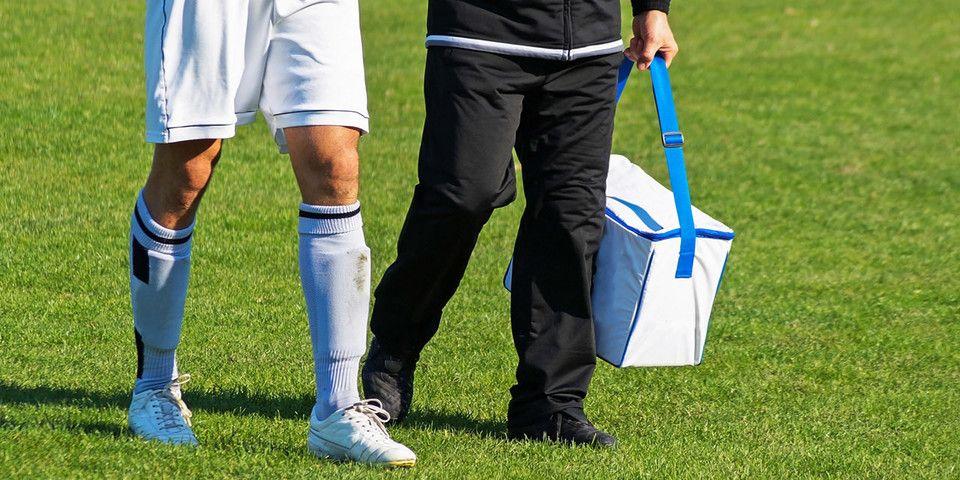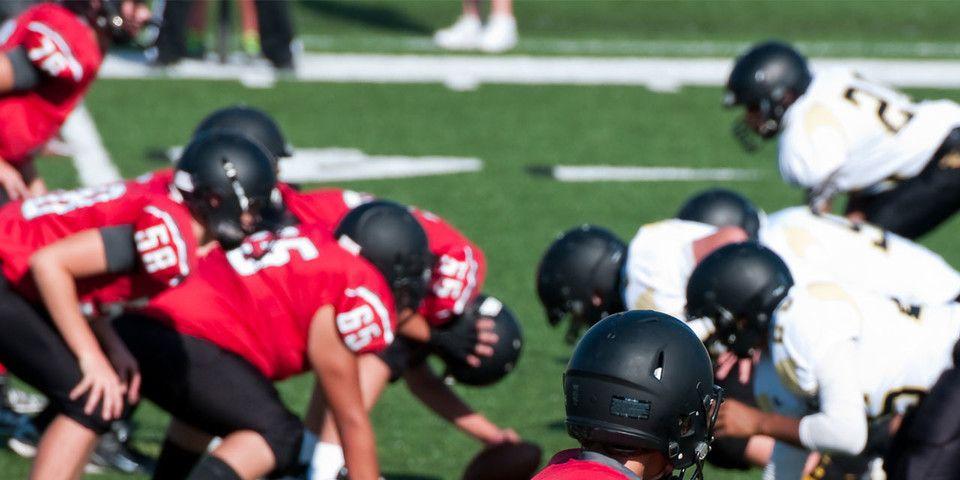Avoiding Excessive Intense Physical Activity in Football
Know the different degrees of physical activity, and the risks involved with heavy training in football.
Football injuries average nearly 250,000 each year, with recent years peaking close to 400,000 injuries per year. As the third most dangerous sport in the U.S., football injuries make up a significant portion of the sports-related injuries reported each year. In many cases, such injuries can be avoided when pursuing a proper exercise routine.
For athletes, understanding the various levels of exercise intensity is important to stay in line with personal exercise goals. Focusing too heavily on intense physical activity in football training can result in overexertion injuries and other complications. As the hardest step in an exercise regimen is simply starting it in the first place, many athletes make the mistake of attempting the most rigorous exercises right away.
In order to maintain a healthy regimen, exercise routines should incorporate all intensities of exercise. Too much extreme training has been found to lead to heart damage, and even more so amongst people with genetic risk factors for heart disease. The physicians at Rothman Orthopaedics encounter hundreds of sports-related injuries each year, and many patients are unaware of the risks involved with the intense vigorous physical activity in football.
How does Intense Physical Activity in Football Put Athletes at Risk?
The most dangerous, and albeit, rare risks involved with the overly intense physical activity in football training are the heart complications that can occur due to overworking one’s body. In addition to heart damage from overexertion, patients may also be at risk for arrhythmia, a heart condition in which the heart begins to beat at an abnormal or irregular rhythm. Arrhythmia is a very rare condition for those engaging in high levels of intense activity with no moderation.
Aside from more severe complications such as heart damage, overexertion and overly heavy training for football can, for one thing, lead to a significant decrease in performance; the adverse effects of overtraining outweigh any benefits received from intense exercise. If a regimen only includes heavy training, the body will need longer breaks and more recovery in order to continue, often making such a regimen counterproductive.
What Should a Proper Football Exercise Routine Look Like?
The undeniable truth is that physical activity is good for you. Medical experts have agreed that regardless of your skill level, the average person should engage in a minimum of 150 minutes of moderate activity each week. For athletes such as football players, an exercise regimen should expand on that foundation of moderate activity.
An example of a moderate physical activity would be jogging, walking, or swimming. A general rule for moderate activities is that they still allow you to do another task at the same time, such as carry a conversation or watch a tv program.
In contrast, vigorous or strenuous activity examples could include weight training, running, or hiking with significant elevation gain. An overabundance of these strenuous activities can result in the aforementioned heart complications, as well as a higher risk of injury, and potentially a weakened immune system.
Such strenuous activity in training for football, while useful for building an athlete’s endurance and resilience, should not be the entirety of an exercise regimen. With moderate physical activity included and a regular alternation between the two intensities of exercise, athletes will be able to create an ideal routine for their football training.
Enlist Capable Orthopedic Experts
Be wary of underestimating the dangers involved with intense physical football training. If you or a loved one has experienced a physical complication due to intense physical activity in football, or are simply looking to learn how to prevent it, contact one of the many orthopedic experts at Rothman Orthopaedics. Rothman Orthopaedics' experienced and capable physicians treat hundreds of football-related injuries each year. Call us at 1-800-321-9999, or visit our website to set up an appointment online.
Related Specialties
Related Programs
-

Athletic Training- Sport Medicine Outreach
Our Field Athletic Trainers provide direct sports medicine care to youth, high school, college and professional athletes. Rothman AT’s provide athletic training services throughout Southeastern PA to interscholastic high schools, colleges, as well as tournaments and special events.Read More -

Injury Prevention Program
The Injury Prevention Program at the Rothman Orthopaedic Institute is dedicated to the prevention of injuries from athletic participation, particularly youth sports.Read More




